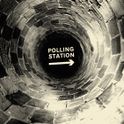Too much time has been wasted on trying to decipher Dominic Cummings’s showy, research-strewn ramblings. He is not a puzzle to be solved intellectually, but psychoanalytically. And not an especially difficult puzzle either.
Contemptuous of just about every official and politician he has ever worked with, with only a partial exception for Michael Gove, he is a man with something to prove. Specifically, that he is right, that others are wrong, and that he is the biggest brain in the room.
The purported idea behind that notorious ad for assorted “misfits and weirdos” was to bypass a sclerotic civil service and bring the most brilliant scientists and economists into No 10. And yet in this avowedly open-minded appeal, Cummings presumed to tell the diverse new intellectual elite what exactly they should have been reading. He bandied around specific papers with clever-sounding names—“Computational rationality: A converging paradigm for intelligence in brains, minds, and machines” and “Early warning signals for critical transitions in a thermoacoustic system”—in a way that nobody would do unless they thought they knew it all already.
And since he’s been running the engine room of the Johnson government, he has been concerned to prove something beyond his brilliance: namely, his power. Incidents have ranged from displays of authority worthy of a petty gangster—such as contriving to have the former chancellor’s special adviser, Sonia Khan, marched out of No 10 by armed police—to more significant showdowns, such as manoeuvring her boss, Sajid Javid, out of the Treasury a few months later.
Although he himself pointedly refuses to join the political party that has put him in No 10, he drove an unprecedented purge of its ranks last autumn, withdrawing the whip from grandees like Kenneth Clarke who had been figures in it since before he was born.
Everything he has done in Downing Street, from the seismic (shutting down parliament) to the comic (dressing day-in day-out like a 1990s drug dealer) has served to underline one point: normal rules do not apply.
And so, when it comes to Covid-19, and the genuinely difficult problem of how to deal with a four-year old while caring for an infected wife and with every chance of getting sick himself, it is natural that Cummings should have felt entitled to improvise his own solution, without worrying about what the rules say. It’s in his character both to think he knows best, and to dismiss the law as an ass.
The first difficulty for him this time, though, is that this particular ass of a law is one he was involved in imposing. His second and even greater difficulty is that it was a law that has very directly affected every one of us, with many facing trying and difficult consequences, on a daily basis.
The river of raw anger on social media from people who have not been allowed to meet new grandchildren, hold the hands of the dying or attend funerals is of an entirely different character from the synthetic rage that frames the typical Westminster row.
In most political rows—and Cummings is quite right about this—the public see one set of clowns slinging mud at another and pay it very little mind. But when, much more rarely, they judge that their overlords are failing to follow their own rules we see the sort of genuine wrath which is not easily quelled, as with the great expenses crisis of 2009.
The flock of tweeting ministers arguing that it “isn’t a crime to care for your family” today reveals an administration betting everything on this being the ordinary sort of row that will blow over before long. So too, does Downing Street’s move to contradict the account of the Durham police force, which it is of course relying on to enforce the lockdown, about Cummings having been spoken to.
Why have they made this call? Why not either apologise, or let him go this morning and quietly bring him back in a few months? My suspicion is that the extraordinary tumult of Brexit, and the vindication in the December election of the Cummings strategy for navigating that, has persuaded the government as a whole to buy into his presumption about ordinary rules not applying. Here is the man who looked a bit wild, but got us through the last crisis, so let’s stand by him for the new crisis too.
It’s an understandable reaction, but one that badly misreads the mood. The substance of the last crisis was as boring as it was baffling. WTO trading terms, regulatory dis-alignment, limited customs checks within the island of Ireland: these are not things on which many of us could muster a view, still less any real passion, until they somehow got bound up with questions of identity, a binding Cummings cunningly helped to contrive.
Not being able to go and see your mum, however, now that is another question. We all care, and he has turned out not to care enough about that to throw his lot in with the rest of us. He may brazen this out, or—more likely—he may very soon be gone. Either way, however, the affair will have drawn a sharp line under the Johnson premiership’s honeymoon.
The posturing and institutional short-circuiting of the Brexit crisis is passing, and so is the license for anarchy it offered to Cummings and Johnson. We are instead into uniquely serious times. No 10 is in for a rude lesson in how the normal rules are back—and perhaps with special force.
The Cummings doctrine: Normal rules do not apply
From drug-dealer dress to shutting down parliament, his contempt for the old ways helped him navigate the baffling and boring crisis of Brexit. But this time we really care—and No 10 will pay a price for his disdain
May 23, 2020

Photo: Yui Mok/PA Wire/PA Images











